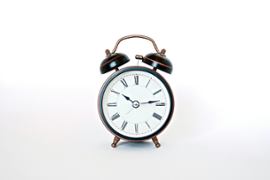Summary
- A recent study examines how prolonged periods of wakefulness can affect the intensity of gambling activities.
- Researchers suggest that prolonged sleep deprivation has minimal impact on the intensity of gambling, although there are certain caveats to consider.
- The recent study was structured to more accurately reflect the real-world conditions encountered by regular gamblers.
A recent study has aimed to enhance previous research by examining whether prolonged wakefulness leads to more intense gambling behavior.
Extended wakefulness and the role and impact it has on gambling intensity
Previous experiments have suggested that the longer individuals remain awake without sleep, the more intense their gambling behavior becomes, meaning they place larger bets more quickly. However, a study by Thorne, H.B., Rockloff, M., Vincent, G.E., and others, titled Laboratory-induced extended wakefulness impairs mood and vigilance but not gambling behaviour in regular gamblers, aims to challenge this assertion. The researchers modified the experimental parameters to create conditions that more realistically simulate extended wakefulness and its possible effects on gambling behavior. In particular, the study monitored participants' gambling habits after they had been awake for 18.75 hours. Subjects were observed in a controlled setting and given gambling tasks at 6:00 p.m. and again at 3:00 a.m. The researchers found no significant changes in either the frequency or intensity of gambling behavior due to extended wakefulness. The study included 9 male and 10 female participants to explore potential gender differences in behavior. However, the findings did not indicate any significant variations based on the participants' gender.
Why does this take on extended wakefulness matter?
The new research is significant for several reasons. Firstly, it replicates the prolonged wakefulness that real gamblers experience. Previous studies that established a link between the intensity of gambling and wakefulness often involved participants staying awake for extended periods, typically ranging from 24 to 72 hours. However, the recent study highlights that it employed specially-designed games to assess intensity and participation during these periods of extended wakefulness. These games do not fully represent real-world casino games. It's important to note that this study focused solely on individuals' behavior after a single extended period without sleep, rather than observing people who have experienced multiple such periods and evaluating their gambling intensity in response.





























